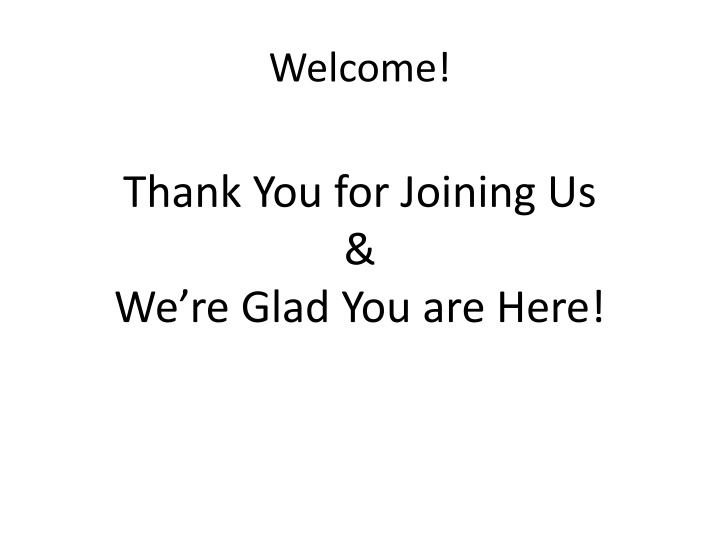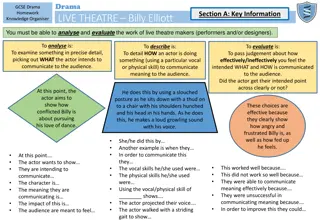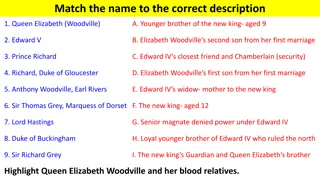
Learning and Competence in Education
Explore the concepts of learning, competence, and online education presented by Elliot King, Ph.D., from Loyola University Maryland. From defining learning to discussing competencies essential for navigating the modern world, this content provides valuable insights for educators and learners alike.
Download Presentation

Please find below an Image/Link to download the presentation.
The content on the website is provided AS IS for your information and personal use only. It may not be sold, licensed, or shared on other websites without obtaining consent from the author. If you encounter any issues during the download, it is possible that the publisher has removed the file from their server.
You are allowed to download the files provided on this website for personal or commercial use, subject to the condition that they are used lawfully. All files are the property of their respective owners.
The content on the website is provided AS IS for your information and personal use only. It may not be sold, licensed, or shared on other websites without obtaining consent from the author.
E N D
Presentation Transcript
Welcome! Thank You for Joining Us & We re Glad You are Here!
Learning Sciences: Aligning Research to the Classroom Experience General Session: OLC Collaborate with Emerging Learning Design May 31, 2017 Elliot King Ph.D. Loyola University Maryland
About Me Chair, Department of Communication, Loyola University Maryland Co-founder, M.A. program in Emerging Media (low residency program) Co-author Best Practices in Online Program Development (2014) Best Practices in Planning Strategically for Online Education (Forthcoming)
Contact Me Follow me on Twitter @elliotkingphd #loveteachingonline University5dot0.com eking@loyola.edu
The Agenda My perspective bias The Problem: What constitutes learning? The Problem: What constitutes data? Questions for learning analytics? 3 small but concrete ideas you can do today. Conclusion
My Bias Online education should provide educational experiences that EXCEED the quality of face-to-face education. Better for student and teacher A practitioner s perspective
What Constitutes Learning? A change in human disposition or capability that persists over a period of time and is not simply ascribable to processes of growth. The Conditions of Learning by Robert Gagne It has been suggested that the term learning defies precise definition because it is put to multiple uses. Learning is used to refer to (1) the acquisition and mastery of what is already known about something, (2) the extension and clarification of meaning of one s experience, or (3) an organized, intentional process of testing ideas relevant to problems. In other words, it is used to describe a product, a process, or a function From Learning How to Learn: Applied Theory for Adults by R.M. Smith A persisting change in human performance or performance potential [which] must come about as a result of the learner s experience and interaction with the world Psychology of Learning for Instruction by M. Driscoll
What Constitutes Competence Students need competencies (including creativity, collaboration, and communication) to navigate a fluid and increasingly borderless world. Partnership for 21stCentury Learning Individual characteristics, including knowledge, skills, abilities, self-image, traits, mindsets, feelings, and ways of thinking, which when used with appropriate roles, achieve desired results. Society for Human Resource Management
Definition I Use Acquiring knowledge and skills and having them readily available from memory so you can make sense of future problems and opportunities. Make It Stick: The Science of Successful Learning by Peter C. Brown, Henry L. Roediger III, Mark A. McDaniel
Key Factors: Learning Knowing Time Context Independence. You may know something even if you can t recall it immediately on demand
The Problem: What Constitutes Data? Neuroscientific Data LMS Data
Learning Analytics Questions What is the relationship between engagement and completion? Course access Content access Social learning Who owns the data? Who sets the policies?
What Do You Really Want Students to Learn/Know? The essential question: What is the impact of living in a highly mediated environment on the way we see ourselves; the way we see others, and how we live together? Hegemony
Keeping the End Goal in Sight Acquiring knowledge and skills and having them readily available from memory so you can make sense of future problems and opportunities.
Conclusion The growth of online education and educational technology provides an opportunity to rethink educational experiences from the ground up. Cognitive psychology provides a direction in applying them
Session Evaluations Contest https://tinyurl.com/OLCwELD- program Navigate to specific session page to evaluate Click orange Evaluate Session button on the right Complete session evaluation* Each session evaluation completed (limited to one per session) = one contest entry One (1) $25 gift card will be awarded *Contact information required for contest entry but will not be shared with the presenters. Winners will be contacted post-conference.
Follow Us on Twitter! Let s Get the trending on Twitter! @ELDconf @OLCToday






















